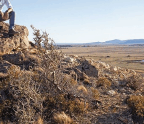
REPORT JUSTIN KNOCK MW
The Barossa is a special place for Shiraz. At its best, few regions come close (with any grape variety) in matching the fruit quality, layers of complex flavours, depth and richness of tannin – and in such a wide range of stylistic interpretations. Regardless of price or ambition, the majority of Barossa Shirazes age and mature beautifully, holding their fruit depth for many years as they evolve into the equivalent of a muchloved, supple leather recliner.
So it was somewhat surprising that finding producers, or their UK importers, with both a young and more mature vintage of the same Shiraz cuvée proved so challenging. Our request, canvassed widely over several months, was not for commercially available quantities of one or both wines, but simply a pair of bottles (restricted to one pair per producer): the first being the current release, the other a vintage from 2015 or older. While the 34 pairs entered certainly gave a great overview, we expected far more submissions.
It’s an axiom of our trade that the concept of ‘fine wine’ is underpinned by the ability to improve with age. Barossa Shiraz is ‘fine’ by this definition alone, but finding mature examples in the UK is beyond difficult. The UK’s top restaurants love the classic regions of Europe partly because mature stocks are so readily accessible. Should Barossa Shiraz and other Australian fine wine wish to seriously appear on the same lists, then older vintages need to be more widely available.
British consumers and the wine trade still love the boldness of Barossa Shiraz, and there is a loyal fan base on these shores that appreciates the hedonistic pleasure it can bring. We saw a range of styles perform well in this tasting, from those that we may today call ‘traditional’ – that is, riper fruit and more overt use of (deeply integrated) oak – to wines which show that the Barossa is more assuredly moving in the direction of simpler winemaking, alluding to more reductive handling at times, and which allows the wonderful purity of fruit to shine brightly.
‘I’ve always known Australian Shiraz as the best-value wine in the world,’ said Roger Jones. ‘With age it’s absolutely stunning, and so it proved in our tasting. Two decades of ageing should be no problem for top Barossa Shiraz. Even if you buy the cheaper wines from the big names and age them for five years, the benefit you’ll get is incredible.’
The older vintages we tasted covered a range of different conditions: theTina Gellie. ‘The regions’ wines are beloved by many for their opulent drinking in youth, but fans should resist drinking these latest releases and lay a few bottles down. With the right storage conditions, they can be cellared with confidence.’




